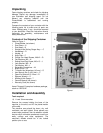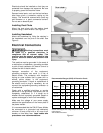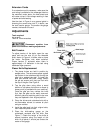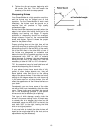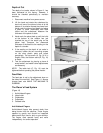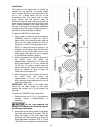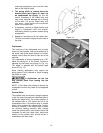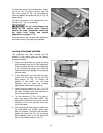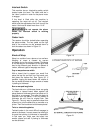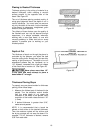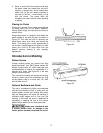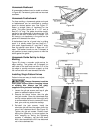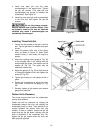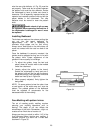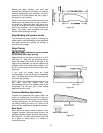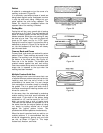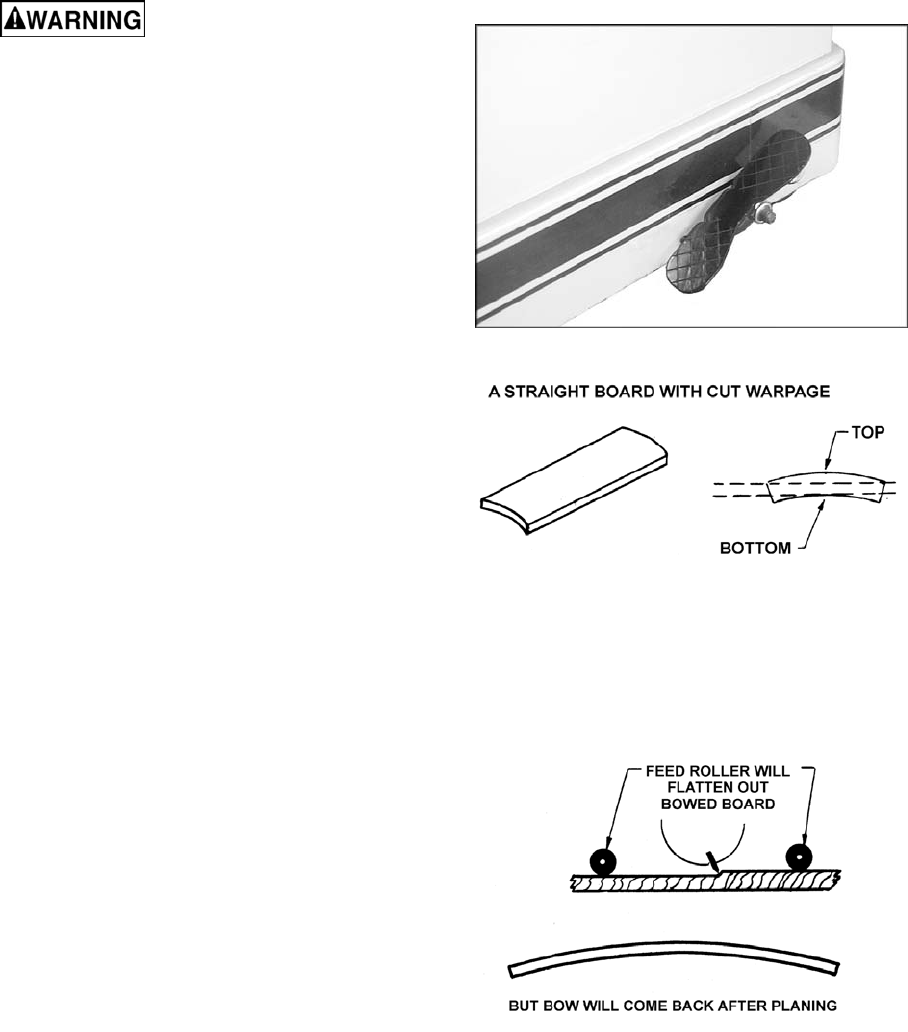
15
Interlock Switch
This machine has an interlocking safety switch
located under the hood. The hood must be in
the “down” position in order for the planer motor
to engage.
If the hood is lifted while the machine is
operating, the motor will cut off. The interlock
switch must be adjusted so that it will turn off the
motor if the hood is raised more than 11/16”.
Do not operate the planer
unless the interlock switch is working
properly.
Caster Lock
The casters should be locked before operating
the planer-molder. The foot pedal on the right
side of the machine can be pressed down to
lock the casters as shown in Figure 19.
Operation
Kinds of Warp
Warp is a variation from a plane or true surface.
Warping of wood is caused by uneven
shrinkage during the drying process. Shrinkage
is not the same in all directions of the grain and
due to the different grain direction in pieces of
lumber, different types of warpage can occur.
Cup or warped across width
With a board that is cupped you would first
plane the top flat and then turn the board over
and plane the bottom flat. See Figure 20. If
possible, ripping the board down the middle of
the cup would eliminate a large amount of waste
in planing to thickness.
Bow or warped lengthwise
The feed rollers on a thickness planer are going
to flatten a bowed board down against the
planer bed and thickness plane the board as if it
had little or no warpage. Then after the board is
removed from the planer it will be planed to
thickness but still have its original bow. See
Figure 21. The only way to remove the bow from
a board is to joint the board flat on one side on a
jointer. Then the board can be thickness planed.
Twist or twisted lengthwise
Twisted lumber is the most difficult warpage to
plane to thickness. In some cases the twisting is
so great that planing to thickness is impossible.
In this case you might saw the board into
smaller pieces and see if planing to thickness
can be achieved.
Figure 19
Figure 20
Figure 21



